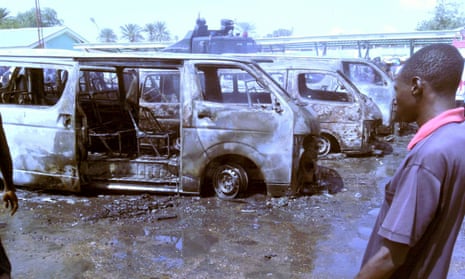Up to 30,000 foreign fighters from as many as 100 countries have travelled to Syria and Iraq since 2011, according to an independent analysis.
Half came from neighbouring countries and north Africa, and a quarter from Europe and Turkey, says the Global Terrorism Index, drawn up by the Institute for Economics and Peace (IEP) thinktank.
The flow of foreign fighters does not appear to be diminishing, with more than 7,000 arriving in the first six months of 2015.
Terrorism claimed the lives of 32,658 people last year, an 80% increase on 2013, it says. It calculates that the total economic cost amounted to an all-time high of $52.9bn (£34.8bn) last year.
Isis and Boko Haram were together responsible for 51% of all claimed terror-related fatalities in 2014, the analysis finds. Iraq continued to be the country most affected by terrorism, with 9,929 fatalities, the highest ever recorded in a single country.
IEP described Isis as “effectively acting as a state”, raising funds through a taxation system estimated to be worth $11m a month and oil sales which are estimated to exceed $500m a year.
Nigeria experienced the largest increase in the number of terrorist attacks and lost 7,512 lives in 2014, an increase of more than 300% since 2013.
Seventy-eight per cent of all deaths and 57% of all attacks around the world occurred in five countries: Afghanistan, Iraq, Nigeria, Pakistan and Syria, according to the survey.
The report said it was important to place the figures in context with other forms of violence. At least 437,000 people are murdered each year, more than 13 times the number of victims of terrorism.
Steve Killelea, the executive chairman of IEP, said: “What is most striking from our analysis is how the drivers of terrorism differ between more and less developed countries. In the west, socio-economic factors such as youth unemployment and drug crime correlate with terrorism. In non-OECD countries, terrorism shows stronger associations with ongoing conflict, corruption and violence.”
